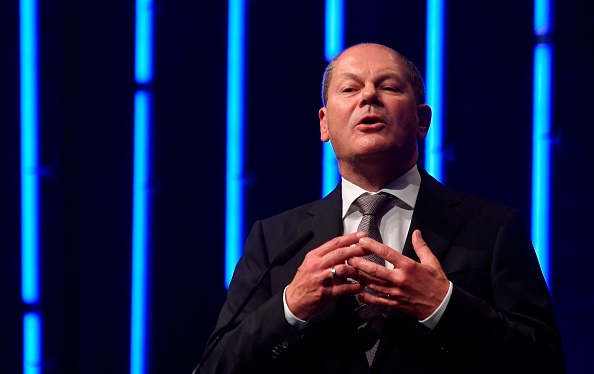Stock markets rise after Germany hints at stimulus

European stock markets have risen sharply after opening and bond yields have fallen as investors react to the news that Germany could inject some stimulus into its stalling economy.
Read more: US stock markets jump after China hints at stimulus
Germany’s Dax was the biggest riser, climbing 1.2 per cent in early trading. Meanwhile the FTSE 100 rose one per cent, France’s CAC 40 climbed 0.9 per cent and the pan-European Euronext 100 was one per cent higher.
Germany is strong enough to tackle any future economic crisis “with full force,” the country’s finance minister, Olaf Scholz, said yesterday.
The German economy, the biggest in Europe, shrank by 0.1 per cent in the second quarter, official figures showed last week.
It has faced growing pressure to relax its strict public spending rules and boost investment by taking on debt. Yet Scholz suggested Germany would only turn on the taps in a recession.
Michael Hewson, chief market analyst at CMC Markets, said Scholz’s words were “significant given Germany’s tendency to err towards fiscal prudence”.
“However, it is far from being anywhere near bad enough to prompt the German government to deviate away from its zero deficit or “black zero” policy.”
Scholz’s words come after investors were buoyed on Friday by the news that China, whose economy is also slowing, is planning to inject some stimulus into its economy.
“Growing expectation of stimulus measures from countries across the globe is going a long way to boost sentiment,” said Jasper Lawler, head of research at London Capital Group.
Stocks markets fell across the board last week in a bruising five days as the US-China trade war and the inversion of government bond “yield curves” in the US and UK, widely thought to presage a recession, rattled investors. So-called safe-haven assets rose as investors fled stocks.
Yet investors have returned to riskier assets today, sending the yield on the 10-year US government bond, called a Treasury, up 2.2 basis points (0.022 percentage points). Yields move inversely to prices.
Read more: German economy shrinks in second quarter as exports slump
The 10-year German Bund had risen 2.4 basis points in morning trading, to minus 0.66 per cent.